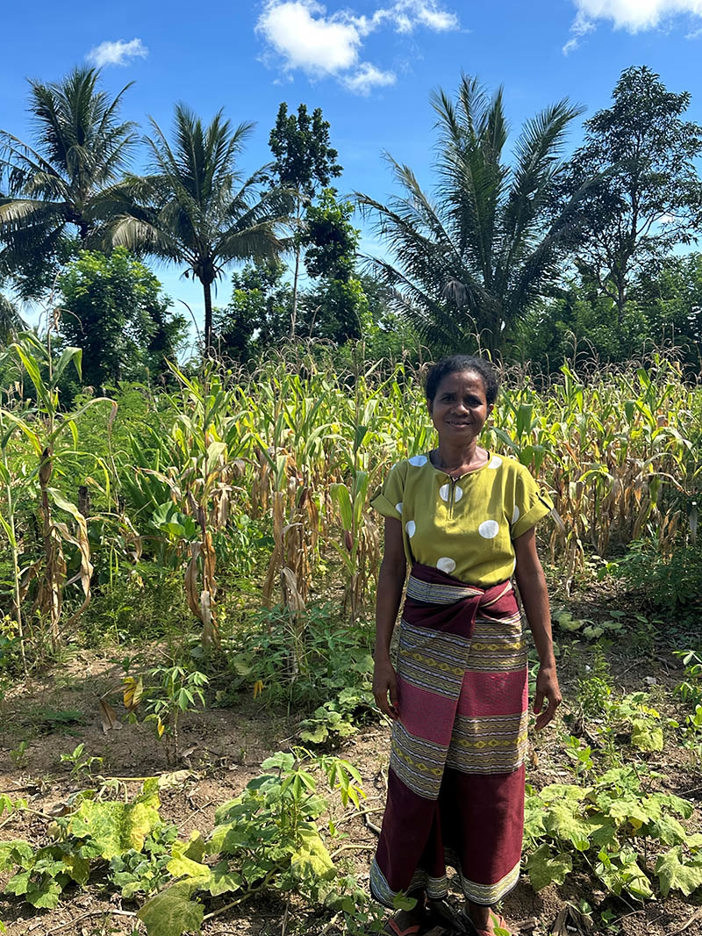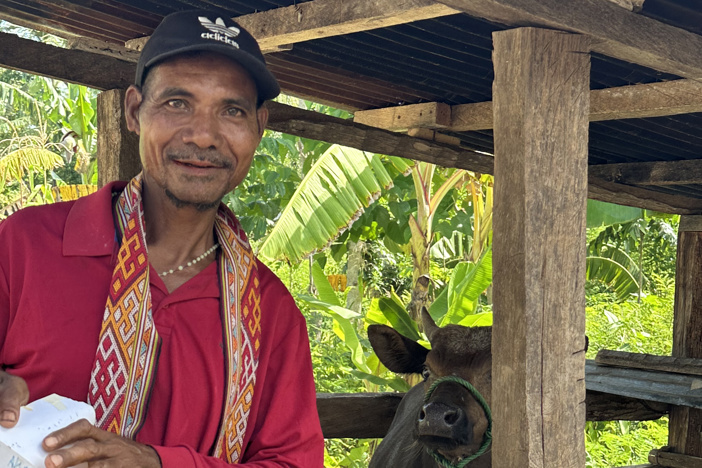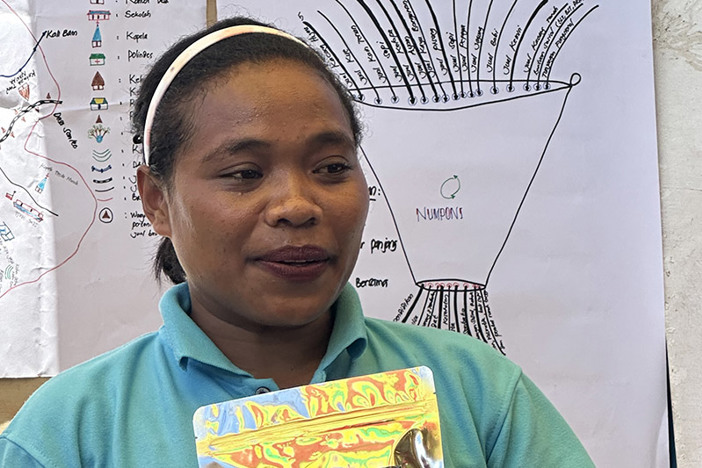As climate change intensifies across Indonesia’s eastern provinces, farmers in Nusa Tenggara Timur are among the hardest hit. With rainfall becoming increasingly erratic and droughts stretching for months, traditional farming methods are no longer enough.
In response, communities are adapting by experimenting with drought-resistant crops, water-saving techniques and small-scale business initiatives. Through resilience and innovation, farmers in Indonesia are learning techniques to help them survive and thrive in one of the country’s most climate-vulnerable regions.
What is the impact of climate change for farmers in Indonesia?
Climate change has a significant impact on farmers in Nusa Tenggara Timur, one of the driest and most vulnerable provinces in Indonesia.
Many areas experience 7-8 months of drought per year, which can have a dramatic impact on crops. Climate change has led to even less predictable rainfall patterns in recent years. This has often led to crop failures due too much, too little or untimely rainfall.
For subsistence farmers, a crop failure has direct impact on their diet. Malnutrition and stunting rates in eastern Indonesia are among the highest in Indonesia.
How are farmers adapting to unpredictable weather?
The Integrated Village Development Project, supported by the Australian government through the Australian NGO Cooperation Program (ANCP) and in partnership with Yayasan Mitra Tani Mandiri (YMTM), is helping farmers adapt to climate change.
Through the program, farmers learn innovative techniques to help them use water more efficiently. In addition, drought-resistant crops such as sorghum are promoted. Communities and local authorities have also joined together to protect and manage natural springs and apply conservative watering systems for fields.
Beyond farming, the project also supports families in diversifying their income through initiatives like chicken farming and basket weaving, while training participants to promote their products online and respond to market demands. With these tools, farmers no longer have to wait for favourable weather conditions to survive – they are empowered to thrive even in the face of changing climate conditions.
Maria’s story: growing hope amidst hardship
Maria is a mother of six children and a member of one of a farmer’s group in her village.
Like many in her village, she and her husband worked the land primarily for their own consumption, unaware that they could sell their produce for a profit. Their vulnerability was exposed when Cyclone Seroja struck in 2021, decimating their corn fields and leaving them without food for months.
After joining the program, Maria learned how to produce organic fertiliser using cow-dung and kitchen scraps. She learned how to improve yields by using system called terracing, which helps to reduce erosion, reduce the use of water and keep the fertile soil in place.
The program supported Maria to plant more varieties of crops, including a range of herbs, beans, peanuts, sorgum and different types of casava. This will contribute to a reduction of food insecurity, a risk that is very real in this area.

Maria is a farmer living in Indonesia. Photo: Caritas Australia
Nikodemus’s story: Planting drought-resistant crops
Nikodemus changed his farming technique through training and support from the program. He learned how to cultivate his land more efficiently using bedding and terracing to reduce erosion of valuable humus. He also learned how to produce organic fertilizer through the program activities.
Nikodemus described how the program helped him to increase his yield and income. He also started to use more varieties on his fields such as planting drought-resistant sorghum.
“This year, most of our corn fields failed due to extended period of rain. Many of us have lost most of their corn,” Nikodemus said.
“I have also planted sorgum with support from the YMTM and it grew very well. I will keep some of the sorghum so I can plant it again next year. If our maize fails, we at least have something to eat”.

Nikodemus learnt how to plant drought-resistant sorghum through the program. Photo: Caritas Australia
Sila’s story: Turning bananas into income
27-year-old Sila lost both her parents at a young age. Growing up without them, she learned early on how to make do with limited resources.
When she heard about the program, she joined a youth group focused on small business development and alternative income sources like food processing and basket weaving. Among the group’s entrepreneurial activities, Sila saw the potential in banana chips production.
With an abundance of bananas and turmeric growing in her village, Sila quickly realised the business opportunity. "I saw this as a great chance to earn income, especially since we have so many banana trees," she explained.
Thanks to the program, Sila now has a steady income from her banana chips, which allows her to cover her living expenses and even help support her sister’s family.

Sila joined a youth group focused on small business development. Photo: Caritas Australia

















